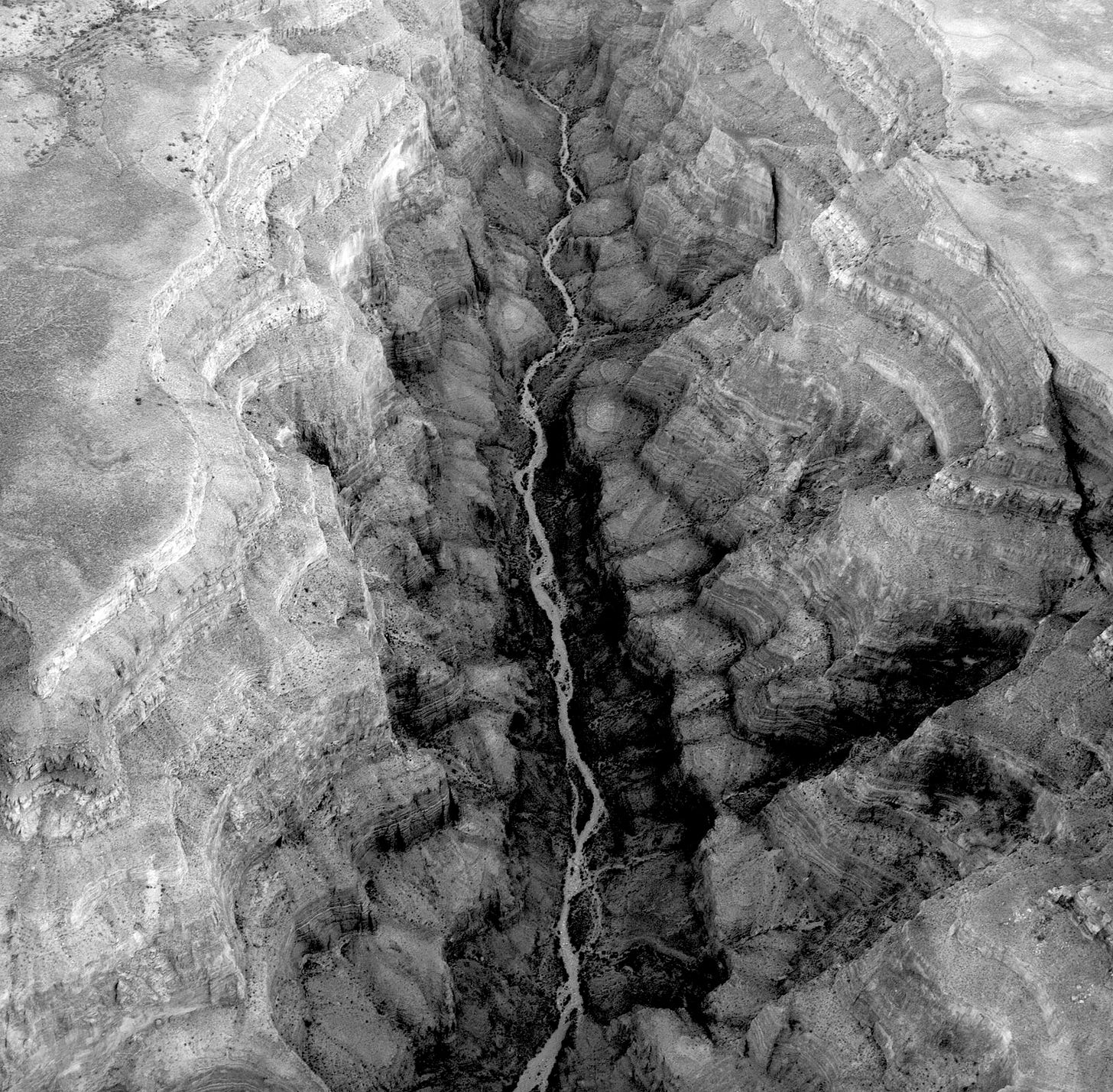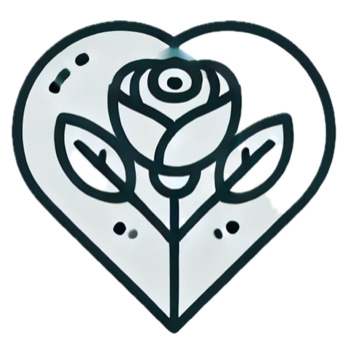Channelling an attractor from the future
Your number one job as a founder
What makes a great founder? Given the many stages that a scaling company goes through, what is a founder’s core job?
There is an essence of the founder role that is meaningfully different than being a manager, or even a leader in a more general sense. At a headline level - the core job of a founder is to channel a future that does not yet exist. One way of framing this is learning to attune to the backwards-causality of attractors from the future.
Being a founder means calling into being something that doesn’t yet exist. But what is it exactly that you are calling into being? It’s not a legal entity or a product (you’ll cycle through those) or even a team, which will inevitably come and go. Nor is it a “vision” (that’s mostly for fundraising and is likely too static to really survive contact with reality) or strategy (that will change with circumstances). Rather, it is summoning something that wants to be born.
The funny thing about this is that if you’re honest with yourself you don’t actually know what it is, how exactly it’s going to look, or what it takes to get there - you don’t even really know where *there* is. However, without recognizing this hazily defined thread as the thing you’re following, you will be stuck either aping what others have done, creating hype without substance, or trying to brute force linear answers to unsolvable complex systems.
One way to look at this hard-to-name thing is as an “attractor.”
What is an attractor?
“Attractor” is a term from complexity science - a set of states toward which a system tends to evolve despite the complexity of the intervening motions. For a simple visualization imagine a bowl-shaped valley with a river at the bottom. When it rains, water will fall semi-randomly across the valley. If you tried to predict where each drop would fall and how it would behave you’d have a hard time because the system is inherently chaotic. However you can bet with high confidence that most of the water will end up in the river. In this sense, the river is an “attractor” - gravity and the contours of the landscape conspire to take a chaotic initial system and coalesce into a predictable future based on initial conditions. Often we think of causality linearly - this leads to this leads to that. From an attractor view, it’s less about perfectly predicting a string of events, and more about aligning with a possible shape of the future that “draws in” other actions.
The complexity of such landscapes is nothing compared to the complexity of the economy: technology, business models, people’s desires, politics, culture, available resources and the players on the field all interdependently influence one another in ways that are path-dependent, semi-random and hard to anticipate with any linear model. This is incredibly hard to navigate. While analysis can be useful for comparing options and getting a view of different pressures at work in a system, the complexity of the world and the need to make choices quickly means we need something else to guide us. While we can’t predict the exact details of the future, we *can* feel into the shape of a potential future toward which the irreducible complexity of the present will converge, and do everything we can to align with and bring it about.
While you’ll still need to do the classic hard work of defining your strategy and value proposition, aligning around an attractor is a different, deeper process.
This isn’t a deliverable artifact that creates a vortex of wordsmithing – it is something alive that you must keep coming back to; something that calls *you*, like a strangely familiar song drifting out from a dark forest. Sometimes this just feels like a yearning in your heart that you can’t quite account for - something that feels like it *should* exist in the world but doesn’t.
You’ll notice I run through a few different definitions of what an attractor is and what it means to follow it - this is because like all living things, I think attractors (and the businesses that help birth them into the present) resent being defined too tightly. However, for defining yours there are a few traits I’d be looking for:
Something is changing - What is possible today that wasn’t possible yesterday? What was true in the past that is shifting? Can you see yourself (and whatever you’re doing) not as some separate thing but as a part of a larger process that is unfolding?
Something is needed - You can feel it in the air. Everyone seems to be running into the same problem but can’t quite say what it is. You have a view on how to solve it - maybe not a solution exactly, but an angle. And you know what you *don’t* want the solution to be.
There’s a vibe - There is something essential, not so much about *what* you want to do, but *how* you want to be doing it. There’s a flavor or aesthetic to it - you can point to a way of looking at the world or a way of acting and say “yes - that’s it.”
It feels yours in a way that’s equal parts energizing and terrifying - This isn’t just something academically interesting. There’s something that’s *your* work to do. It draws both your strengths and the process of facing your deeper fears. What feels like your gift to give? That scares you because it demands a bigger version of yourself than you are today?
Don’t stress about this being something overly defined - it’s not going to be a clear binary “you have it or you don’t”, especially at the beginning. Rather, it’s something that will gradually reveal itself if you pay attention, into which other things will start to fit.
To follow and crystallize an attractor requires an ongoing dance of focus and openness.
Following (and instantiating) an attractor is a fundamentally iterative process. It requires leaning fully into two sets of two movements that may seem contradictory but are fundamentally linked: focus and openness, will and flow - a state of Metis. Athletic readers will recognize this stance - it’s that place of intense concentration where you are both laser focused on the ball and aware of the whole court, able to both leap into action to drive toward a specific goal, and respond deftly as things change. These stances aren’t as contradictory as they may appear - they are all purposeful. When we are in a reactive stance we do the inverse motions already - namely flailing about (non focus) while being closed to new possibilities (non openness), with non-will (paralysis / whining) and non-flow (ineffective force). Just flip the sign and you’re good to go.
There are four tools (+ a secret fifth) I have found that will help you do this well.
Because I am an incorrigible nerd I have them visualized for myself like items in an RPG inventory. You can see them laid out visually below:
Open to flow: Invention is rarely planned. Kekule discovered the circular shape of Benzene after seeing an ouroborous in a dream. George de Mestral invented velcro after seeing burrs sticking to his dog’s fur on a hike. Your mind’s ability to process large, ambient phenomena (like attractors) is something that mostly happens in the background, surfacing in ways that might not initially make sense. If you don’t give yourself space to really listen to what is coming through (you, the world, the people around you), it will be hard to hear an attractor when it’s speaking. Give yourself the time and space to let everything you’ve taken in marinate, without having to force anything or add any more. Can you let go of the need to *make* something happen a particular way and instead pay very close attention to what is already happening? Like Alexander Fleming noticing that bacteria were dying around the accidental fungal growth that became penicillin, an alive attractor will often show up as a synchronicity the world has put in front of you, if you’re willing to pay attention. Power isn’t something that comes from us, it’s something that comes *through* us. Open yourself to all that you are hearing and seeing, all that’s working and stuck, and see what emerges.
Follow the sparks: Because an attractor is a future state projected backwards through time, following it requires a stance of “tracking” - following the little signs that lead the way, like the broken branches and leavings of an animal passing through a forest. For me it often feels like following a golden thread that’s barely visible - or little shiny coins that catch the light as I walk down the sidewalk. As you go about life, what grabs you? What seems like part of something bigger, even if you can’t name what it is? What does your curiosity keep bringing you back to? What events, little or big, seem like the universe conspiring to help you on your way? Where do you notice a swirl of energy, even if it doesn’t fully make sense? As Chris Dixon said - “what the smartest people do on the weekend is what everyone else will do during the week in ten years.” This is easy to mistake for hype cycles, so it’s critical to cross-check it against a deeper sense of meaning, at minimum for yourself. Cultivating a space for this requires giving yourself permission to engage with things outside your usual routine and *follow* the signs that show up for you, even if they don’t obviously fit some logical plan.
3. Focus will into action: You are not just following an attractor, you are bringing it into being. To do this you must exercise your will. This is often the space founders naturally occupy - frenetically jumping from one meeting and one decision to another. However, sometimes when it matters most - when it comes to going after the big thing that *really* matters, even the most action-oriented people distract themselves or find excuses to delay. Not all doors stay open forever. If you have made the space to really listen, then act, and act without hesitation or half measure. Avoid the temptation to “cast about” - to throw ideas at the wall hoping something sticks, or hope that some outside event will come to save the day. Get crystal clear on exactly what you need to do and execute without distraction. To create a new future is a fundamentally risky path, and there is no way to derisk it. Act when you are still afraid - any later is too late.
4. Focus with Discernment: Every startup I have seen fail failed because they failed to say no often enough. You must constantly be pruning - asking yourself if what you are doing is truly worthy of the work that is yours to do. Where are you making excuses for yourself to throw away your energy or work with people you know aren’t right because you are afraid. Where do you scatter yourself in the name of making others happy or trying to avoid facing the fear that your product isn’t actually good enough. Open your calendar - what is truly essential? Look at the people around you, who do you truly believe in? Look in the mirror - where do you make excuses for your own worst impulses in ways you would never accept of anyone else? If you want space for inspiration, space for tracking the thread of greatness you are following, you must cut away everything that is not that, again, and again.
(5) Integration
The above 4 tools only really work their magic when brought together into something that ultimately you can only feel in your heart. Each has their failure modes - you can fall into hype, or random noise, or unnecessary bluntness, or impracticality. The real art is to be able to throw yourself into all of them whole-heartedly, while keeping them in balance. Much of this will depend on developing more moment-to-moment discernment about your own experience - distinguishing between say, hype and aliveness, or conviction and brittle arrogance. Such subtleties are like developing a taste for wine - learning to tell notes beyond “grapey.” There’s a whole world of practices to help with this, but at minimum, just start noticing when something feels beautiful to you, especially at work. If you really pay attention you’ll notice that there are things you find beautiful that go way beyond standard aesthetics - I’ve seen some founders go dreamy-eyed in noisy assembly plants, pitching a perfectly tuned deck, or when a new product feature resolves several prior user-knots all at once. This isn’t quite “follow your bliss” - rather an irreducible sense of pride and worthiness to something that you’ve done or created - perhaps (even especially) when you can still see all the ways it is yet to be improved.
What if I’m not feeling what you’re talking about?
Sometimes nothing will feel this way and you will be afraid. That is part of the journey. Often founders start their journey with a sense of what I’ve described here, but lose it along the way through the grind of day-to-day business and the exhaustion of keeping too many plates spinning. Often the deeper feeling required is hard to cultivate as the squeeze between runway and investor expectations closes in. The typical response is one that veers between optimism and desperation - perhaps an acquisition will close the revenue gap, or some new marketing scheme, or that longshot new enterprise client, or… or… or… This is the most common way that you’ll end up failing to identify the essential; fear of actually committing to what you’re trying to create.
The better response is to return to the fourfold path described above - to look inward at the core of what you are doing and ask hard questions about what is truly valuable, pruning away the noisy bits that are draining energy from the system, and to look outward - to people or readings different from what you normally interact with - to nature, to art, to dreams - to make room for the kind of surprise and synchronicity that points to the next step in the journey.
This is an act of conviction, but also of “giving over” yourself to something greater. Your primary job is living in a future that does not yet exist. There is no way to de-risk it. Your only choice is to stay mad until the world outside you mirrors the world within and it looks like prescience. This is a near impossible thing to do by force of mental faculties alone, which is a hard move for most founders to make. Will is involved, but not the small will of trying to feel like you’re in control when it’s hard. Rather, if you are truly following a bigger stream, then you must jump into it fully. If you fail, then at least fail having given all of yourself to something you believed in, and trust that you have done your part. It is no small thing to have heard something from the future - now it is yours to live.








